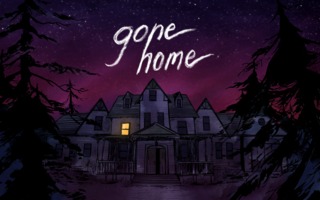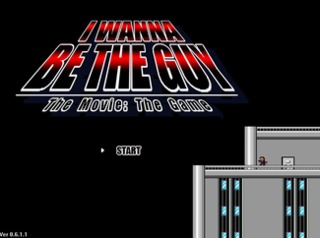There is a common response to the discussion of social issues in video games lately, one that I was guilty of using in my previous blog post (Social Issues and Giant Bomb: The Internet Is Serious Business (but It Doesn't Have to Be)). In my words, "Can we just go back to funny pictures and video games?" More generally, I was expressing the notion that social criticism isn't "video games," it's the notion that the video game community has lost something in its heightened analysis of video game characters and storylines.
Straight up: I wish I had not added that line to the end of that post, because it means nothing. All discussion of video games belongs in the video game community, no matter how much you agree or disagree with it. On the other hand, I still feel there is a useful sentiment that I was trying to express, and I'm going to try to explain it here. "Video game" is too broad a label to describe several different types of experiences that very different people enjoy, and the media preference towards certain types of video game is causing a backlash in the community.
To explain this, I will posit that there are two main categories to video games. No game only fits in one category, but almost all games take a side. The first type of video game is the Story-based game, and the second type is the Sport-based game.

Story-based games aren't necessarily visual novels and can have lots of gameplay, but they do not hinge on gameplay: you would not sit for hours at your television moving your character and watching the curves of the jump arc or the dust kicked up by the footsteps and think "this feels great!" No, you would listen to the dialogue and soak in the environments and try to put yourself in the shoes of the protagonist.

Sport-based games are those where merely moving the analog stick gives you that tingly feeling of controlling a responsive and interactive world. Multiplayer games are often Sport-based by accident, because telling a multiplayer story has been almost always a difficult task. Single-player games can also fit this description, though: games like The Legend of Zelda: The Wind Waker, or Cave Story, or Spelunky. They still have stories, but if you buttoned through the dialog, you would still have an amazing experience.
The problem is that Sport-based games are seen as simplistic and retro by the media, while Story-based games are seen as AAA, blockbuster experiences. The media has decided that Stories are the video games that should be invested in and cared about. This focus on Stories, which I will call Storyism, is a root cause of the disconnect between games media and the larger video game community, and understanding that focus is key to avoiding that disconnect.
Take a look at Patrick Klepek's article about "The Evolution of Death in Games". Its tagline is as follows:
"It's not always about hitting the next checkpoint. Shadow of Mordor, Spelunky, and others are teaching us new ways to understand (and celebrate) death."

It's not always about hitting the next checkpoint? Klepek makes sure to minimize the mechanics of games before he talks about the narrative of games. There is a clear implication that game mechanics are hurting the impact the games have on their audiences. Klepek goes on to say "Most games choose to ignore how ridiculous it sounds for the player to die over and over," furthering the notion that gamers are just waiting to throw down the conventions of game mechanics and experience the true, central good of video games: the narrative. Klepek picks Spelunky as an example of this phenomenon, and yet here is Alex Navarro's explanation of what makes Spelunky so special in Giant Bomb's review:
"Spelunky is a game about constant death. It borrows from the roguelike genre in that death is permanent. Once you die, you go all the way back to the beginning, with none of your money, weapons, or items in tow. That's the flip side to Spelunky's length, which some have quoted as being as short as 10 minutes, if you've mastered the nuances of the games' randomized level designs. Oh, did I mention every level is dynamically generated? Because it is."
Spelunky isn't significant despite its mechanics, it is significant because of its mechanics. We did not need to lessen the impact of the Sport aspect of the game in order to appreciate its Story aspects, in fact we needed to have those Sport aspects to be able to appreciate the narrative. Spelunky is in fact fundamentally on the side of the Sport, seen by a simple test: With lesser story and environment, it would still be great. With lesser gameplay, it would not still be great, and few would be considering the implications of the environment and narrative because they would not want to play it.
Klepek isn't alone in his Storyist perspective. Arthur Gies's review of Bayonetta for Polygon is an oft-cited example of a rift between game players and game critics, except what both sides are arguing is nonsense: Gies thinks that Bayonetta 2 has misogynistic aspects, and a part of the community thinks that those aspects don't matter and that Gies should stop expressing his opinion. Gies should definitely not stop expressing his opinion -- it is his job as a critic to do so, in fact. However, Polygon and other review sites should delve deeper than simply calling the community misogynistic, as I think it is the Storyist perspective of the review that is generating a lot of ire.

Bayonetta 2, again, would be great with a lesser story and terrible with lesser gameplay. It is a Sport-based game, a dance of fingers on buttons answered by a surge of responsive gameplay. Gies can have whatever opinion he wants on the game, but he does not speak for almost anyone who would be interested in it, and so his review comes off as someone reviewing the quality of a football game for the elegance of the players' outfits. His Storyist perspective ultimately leads to a score significantly below that of other critic's evaluations, and makes it so that no Sportist could take his or Polygon's opinion as a useful metric again.
Let's look at League of Legends, or Dota 2, or Starcraft II: these games have stories and characters and yet millions of people watch other people play them with no narrative involved other than the gameplay itself. These are the games that people invest tons and tons of time into and these are the games that lead me to believe that Storyists do not speak for the will of the people, but the will of the critic themselves.
Storyism is beneficial for the critic -- stories have prescribed ways to describe them, they are easy to analyze because anyone can check out a Roger Ebert review and tailor it for whichever video game they're reviewing. Gameplay is hard to describe, seen by the fact that we call it gameplay: a general term of a whole mass of different concepts that are very difficult to unpack. And yet this is the job of the critic, the fundamental task of explaining whether a game is good or not. Describe to me which parts of interacting with the controller and seeing a response on screen felt good, and why they felt good, and how they are similar to other games' good feelings. Get obsessive about it. Coin terms that we can use instead of gameplay and then write articles that only focus on certain parts of those.
Myself and the fans of Nintendo games, the new RTS/MOBA games, fighting games, bullet hell games, and masocore platformers to name just a few Sportist genres, want to hear the deep dive into this tingly feeling we get when we press the buttons and complex movement responds back to us from our screens. I personally want to see developers shamed for sub-60fps games as often as we discuss what Bayonetta has been wearing, and until I do see things like that I can't shake the feeling that critics and their Storyism simply do not speak for me and my intersts. It's not about taking a side in politics for a lot of people -- they pick the side that the Storyists aren't on and hope in vain that they can push them away from saying things like "It's not always about hitting the next checkpoint," because actually -- it is! And we couldn't be happier about it.
Log in to comment